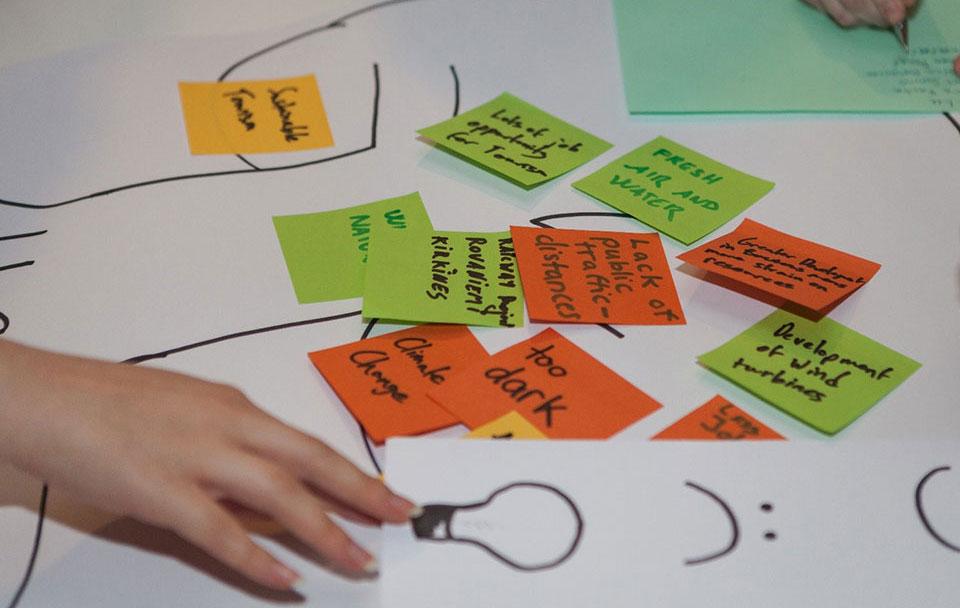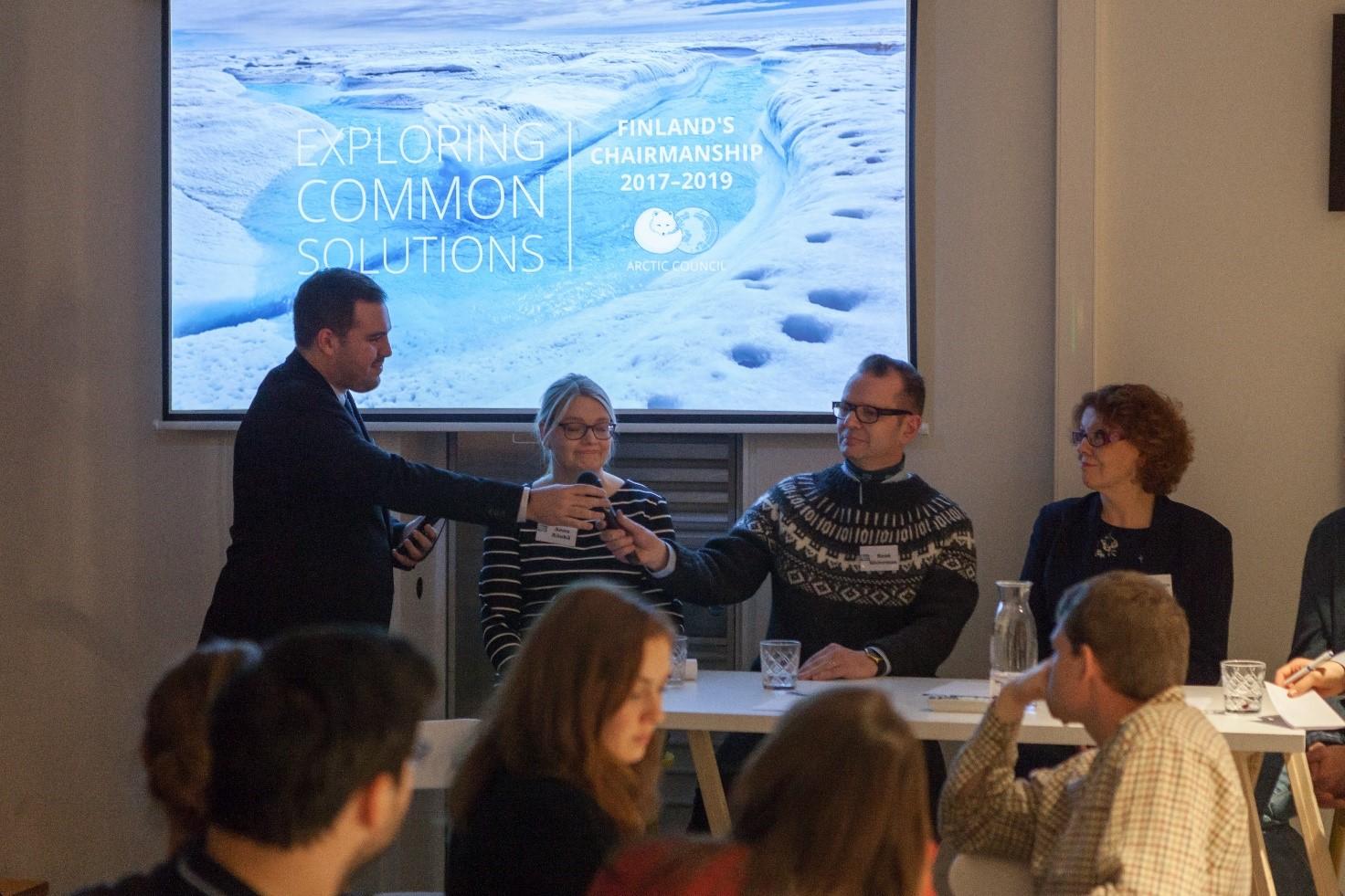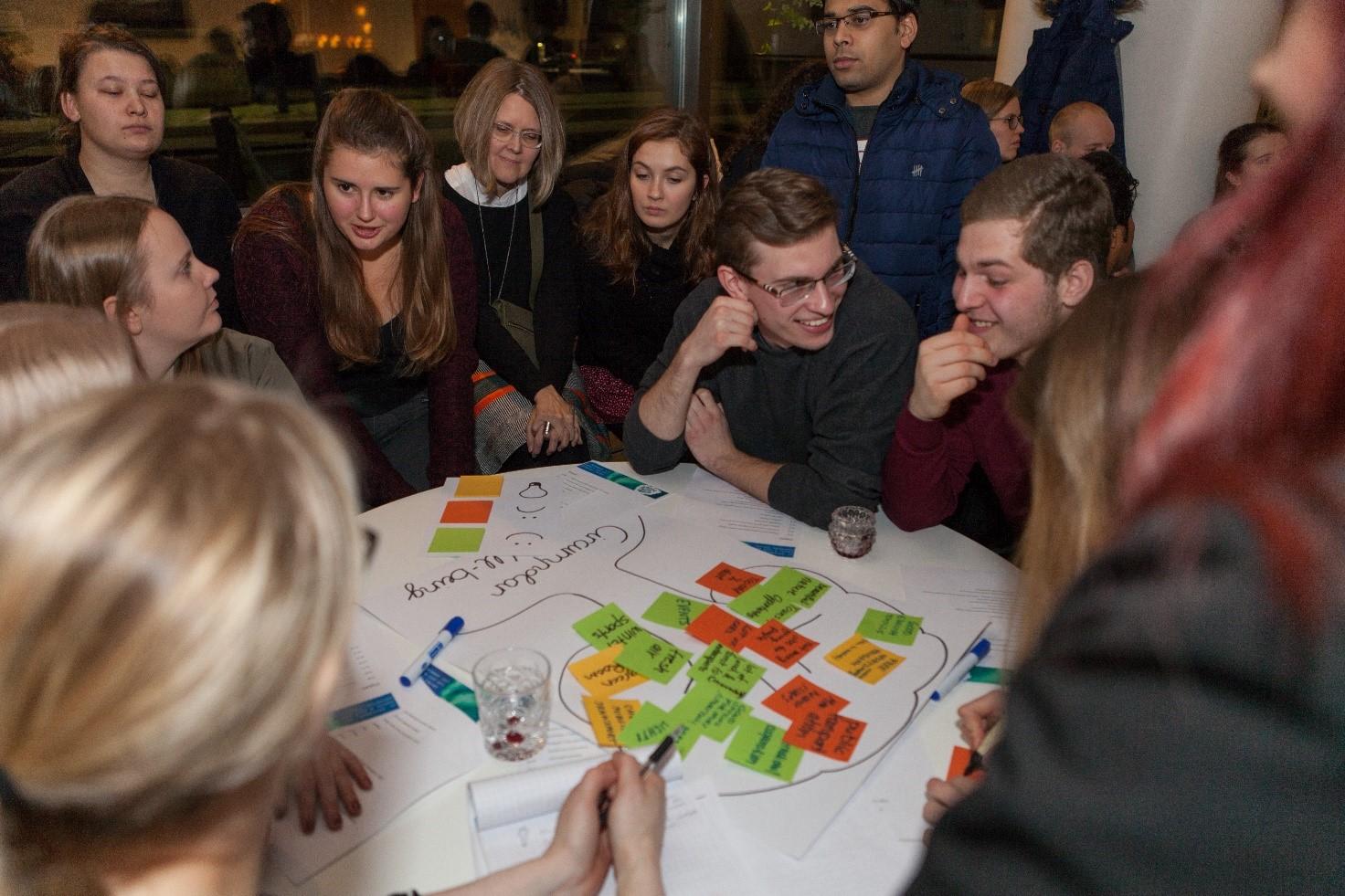
Authors: Anzelika Krastina, Nikolett Plesér and Alena Perervenko.
In Lapland UAS, International Business students are encouraged to learn actual challenges of real life projects through taking an initiative and leading the project. Learning by projects is a part of the curricula in International Business (IB) study programme. However, where and how to get those real life projects? One of the most common ways to get a real life project into the classroom is to cooperate with the companies and to work on specific problems defined by the company. The other way is to initiate own projects based on the identified societal, global, environmental, economic, technological or any other problems. The project is a problem scheduled for solution. Usual initiation of the project in practice begins with defining the problem, analyzing causes and effects of the existing problem, defining possible solutions and deciding on the strategy for the project. This way the project idea is born. While junior students usually work on the projects smaller in their scope, senior students are required to work through entire project lifecycle from project initiation, to project planning, implementation and evaluation.
Case Arctic Youth Forum
Arctic as a region has recently gained global attention. It can be explained by many factors, including climate change, environmental issues, large deposits of natural resources and opening new sea routes and future possibilities for large industries, mining, oil and gas, as well as increasing potential for business development. Arctic studies became a background for many project initiatives of international students. Understanding the region, students gain better vision for the future work, career and business opportunity.
During the problem analysis workshop within the course related to Arctic studies, students realized that actual youth involvement in the Arctic development and cooperation discussions is rather limited. The impression that young people had, was that they are not heard or listened to, although it is obvious that young people are a very important part of the Arctic population, and the youth is the human capital that will shape the future of the region. Young people, the students of the IB programme, decided that they need to take an initiative and take the issue in their own hands. This way the idea of the first Arctic Youth Forum was developed within the course Innovation and Entrepreneurship Project Work (10 ECTS) at Lapland UAS. Students decided to create a forum connecting young people, influencers and decision makers to discuss existing problems develop new ideas together. Thus, students moved from a problem of lack of dialog between decision makers and youth of the Arctic towards a solution to create a dialog platform under the name of Arctic Youth Forum.

The first edition of Arctic Youth Forum was organized in the form of a panel presentation, round table discussion and workshops as a side event of Rovaniemi Arctic Spirit conference organized by the Arctic Center. It took place on the 13th of November 2017 in Rovaniemi, Finland. More than fifty young people from the region came to discuss core topics with the panelists and other participants in organized interactive workshops focusing on:
- Arctic/Barents cross-border cooperation/ Innovation and Cooperation in the Arctic
- Arctic Industries
- Future of Rovaniemi / Regional development
- Arctic Economic and Business Development
- Circumpolar health and wellbeing; Gender studies
- Ideas for a better Artic. How to do things better in the Arctic?
Engagement of young people and panelists during the event showed that this type of forums are really needed and are important venues for dialog between young people, who have good development ideas, and decision makers, who can take these ideas into account and promote them further when creating policies and regional development strategies.
Project and real work life skills developed during the project
Article aims to reflect on what competences related to the real work life were developed and increased as a result of organizing a unique event such as “Arctic Youth Forum”. First, it aimed to solve real life situation problems identified in the Arctic region. It was not an artificial problem created for the purposes of the course exercise. Secondly, in order to organize the event, most of the work and communication happens outside traditional setting of the classroom. Based on the performance assessment, reports and the feedback by the students, the following skills, competences and abilities have been developed or improved throughout the project implementation. Hereby the findings and a few important student comments reflect their learning and personal development.

In the initiations phase, students found and decided on an idea through problem analysis, cause and effect analysis, deciding project strategy and finally project goals.
Our main idea was to give a platform for young people to express their opinions and ideas concerning the future of the Arctic while connecting them with influencers and decision makers…We want our Arctic to be lively, buzzing even in 20 years from now. We need young people to stay in the Arctic and for this to be possible we gave a chance for them to express their ideas and opinions.
During the planning phase, students learnt creating the hierarchy of project objectives, deciding project indicators, quality criteria, defining risks and assumptions. Creating work breakdown structure and activity schedule in the Gantt Chart, planning the resource and budgeting. In the implementation phase, students organized the venue, arranged equipment, found, invited and hosted panelists from government to business organizations and from different countries, made a marketing plan and carried out promotion. Creating the script and planning to carry out smooth workshop process, as well as hosting the event itself were also their tasks. In the evaluation phase, students collected feedback, analyzed it and wrote a report. In addition, they learnt assessing the success of the project against set indicators. Analyzing personal performance and development, and setting new development goals were in the core in evaluating their learning.
Being like a company was interesting because we were in charge of an event and everybody had to work for a common goal. An important event like this motivates people to work hard and not disappoint the group members… Things like the Gantt chart, WBS or Concept Note were something new for some of the members, but at the end we realized that were useful things to work with.
The project helped significantly to improve leadership and teamwork skills.
This project helped me to improve my team-work abilities…it was even more interesting because almost every team member was from different country which sometimes brings some difficulties, but also brings new ideas and solutions which may not occur in teams from the same country or background.
As a leader, I have received such great feedback from the panelists and participants. I am utterly grateful for everyone who worked with me and supported me as now I know what I can achieve if I have a great team (or three) behind me. Project helped me to believe in myself and achieve things like the youth forum, where we actually connected young people with important people involved in decision making and possibly created something, which will continue as a great movement in the future as well.
I learned from my mistakes and I will do my best so as not to make them again in the future. It was a great accomplishment for me as a person. Now I know that it is possible to work on leadership skills through practice and new experiences. And I know that if I made it ones, I can do it again. Leaders are not born. They are made.
Innovation and entrepreneurship competence development reflected through the ability to create an added value by solving an existing problem, observe trends and spot weak signals in order to set the best strategy for the project. Becoming familiar with the social innovation and entrepreneurship concept and principles, developing entrepreneurial mindset, carrying out innovation workshops during the forum and generating new innovation solutions to different problems discussed in the Arctic, students realized that they have gained better understanding of real work life situations.
I learnt a lot though this event, it not just taught me the importance of practicing my knowledge in the real life, but also taught me to cooperation with people. This real life project is really helpful when I begin working in the future.
During networking and collaboration with outside stakeholders, it is important to develop relevant business communication skills, for formulating proper business letters and emails, invitations and promotion material targeted for various beneficiaries.
Partnership was really important thing for the project and its goals, and our partner, the Arctic Centre, was fundamental for the correct implementation of the event. Communication with the stakeholders and the panelists was conducted by the core team frequently…With these kind of things we realized how important are the sponsors and partners for the projects.
For many foreign students, the learning by project work helped them to better understand the Finnish education system. The team in charge of the project implementation consisted of young people from different countries, some of them were local or international degree students, and some of them were exchange students, who came for one semester to Lapland UAS from another country.
As an exchange student this class helped me to better understand Finnish education system, especially approach which is used at the University of Applied Sciences, which is more focused on practical skills´ development.
Regardless of the challenges that real life projects can bring, it is an excellent platform for experiencing, practicing and developing necessary work life skills.
Authors
Anzelika Krastina, Med., Senior Lecturer, Entrepreneurship coach, International coordinator, School of Business and Culture, Lapland UAS Anzelika.krastina(at)lapinamk.fi
Nikolett Plesér (Hungary), International Business (BA) 3rd year student, Arctic Youth Forum (AYF) project leader, Lapland UAS Nikolett.Pleser(at)edu.lapinamk.fi
Alena Perervenko (Russia), International Business (BA) 3rd year student, AYF team leader, Lapland UAS Alena.Perervenko(at)edu.lapinamk.fi



